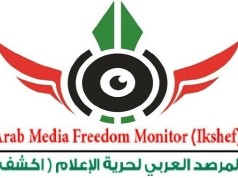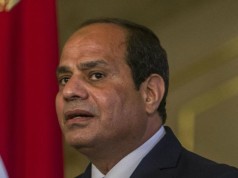
“Egypt is currently undergoing its most vicious iteration of dictatorship in living memory”
Ikshef – March 20, 2017
In a talk given at the University of Manchester in February 2017, journalist, author and former Egypt correspondent for the Guardian newspaper Jack Shenker, tackled the conditions of journalists and NGO’s in Egypt under the current military regime.
In article entitled ” Send them to Egypt” published on March 18, 2017, he referred to “Those of us inside that community had a complex relationship with state violence, violence which in one form or another (as journalists, academics, employees of NGOs) we often documented as part of our work.”
Shenker said that the killing of the Italian researcher Giulio Regeni appeared in “the wider context of authoritarian brutality in which his ordeal unfolded. Whichever metric you use – extrajudicial killings, tortured detainees, cases of cultural censorship, violations of academic freedom – Egypt is currently undergoing its most vicious iteration of dictatorship in living memory. In my own sphere, reporters have been particularly affected. Egypt is now the third biggest jailer of journalists on the planet after Turkey and China. Last year the press syndicate building in Cairo, traditionally something of a refuge for members of the media, was attacked for the first time by security forces and its leaders arrested; since Sisi’s ascendancy, reporters have been hit by a blizzard of travel bans, defamation suits, and arrests. As I speak, Al Jazeera journalist Mahmoud Hussein is being held on charges of ‘disseminating fake news’; the photojournalist Shawkan has been incarcerated since 2013 and could face the death penalty; Abdallah el-Fakharany, also detained in 2013, is now serving a life sentence behind bars.”
Shenker talked more about the staus of journalism in Egypt saying: “Legal intimidation is a more insidious attempt by the regime to delegitimise the very notion of journalism. President Sisi has warned of ‘fourth-generational warfare’ being waged against Egypt by the press and says that journalists who “harm Egypt” will be “held accountable before god”. When legitimate questions were asked about the successes and failures of the state’s much-hyped and highly expensive widening of the Suez Canal (which has so far yielded a 0.0033% increase in revenue), Sisi claimed that “To question national projects is to aim to break Egyptians’ will”. Parliamentary speaker Ali Abdel Aal has announced he is compiling a list of domestic and international journalists who “disseminate seditious content”.”
Shenker streesed that “this crackdown extends well beyond the media world. The brilliant El Nadeem Centre, which helps to rehabilitate victims of state violence recently released its annual report giving statistics for some human rights abuses over the past year. In 2016, there were almost a thousand forced disappearances, as well as more than 500 cases of individual torture, more than 300 cases of collective torture, and more than a hundred deaths in detention. Today, there are an estimated 60,000 political prisoners in Sisi’s jails. Late last year I interviewed El Nadeem’s co-founder Aida Seif ElDawla: “This is the worst situation when it comes to the killing and torture and starving of detainees in prisons that we have ever seen,” she told me. A few weeks later security forces stormed the organisation’s headquarters in downtown Cairo, and shut it down.”
Shenker called upon audience that while “we think about and struggle for justice for Giulio, we must remember not only the other victims of the Egyptian state, but also those closer to home who enable the perpetrators, and to call out their hypocrisy whenever we encounter it. As Isabel Esterman, a journalist with the Egyptian media outlet Mada Masr, wrote: “These people get newspapers. They have diplomats and intelligence officers in Egypt. They are not naïve. They understand the dirty politics, the abuse, the broken bodies and shattered lives that keep Egypt “open for business.” They know what is going on in this country, and until now they have not appeared to care … Italian officials want their gas deals and their anti-terror coalition, and they have always known what the price is. They just expected that somebody else — somebody else’s children — would be the ones to pay for it.””
Click here to go to source




